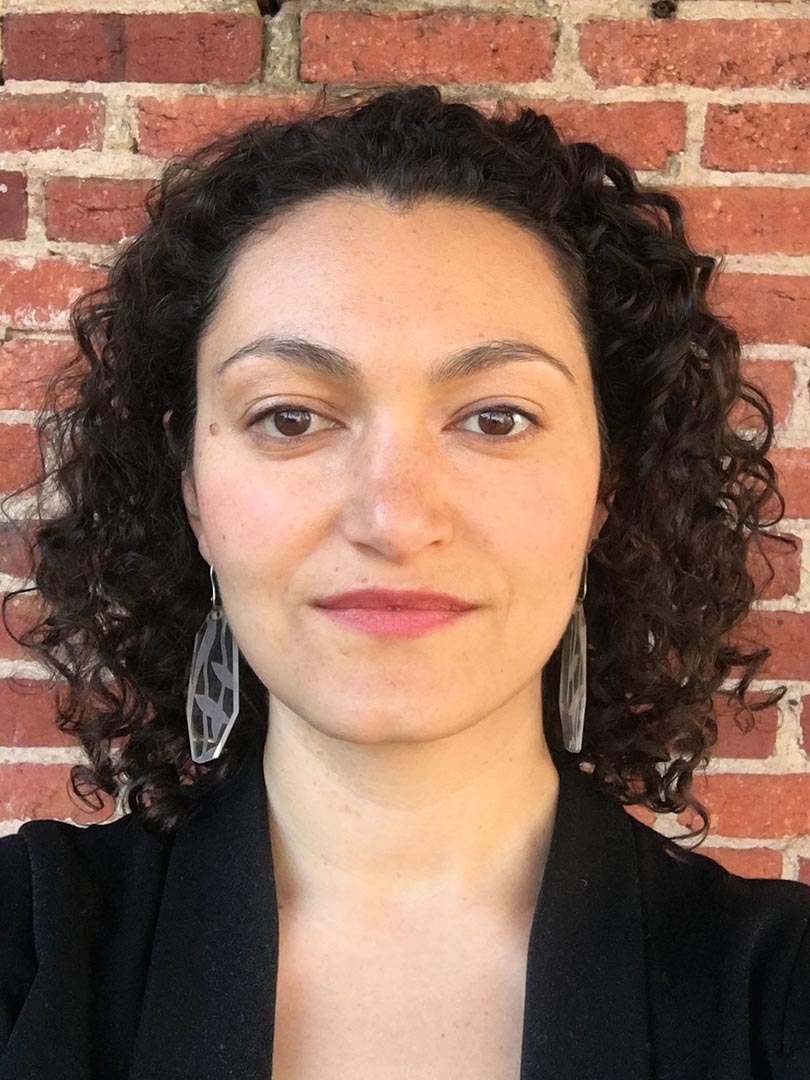Tess Korobkin

Assistant Professor, American Art, Art History and Archaeology
korobkin@umd.edu
4214 Parren J. Mitchell Art/Sociology Building
Get Directions
Education
Ph.D., , Yale Univeristy
Research Expertise
African American/African Diaspora
Gender
Modern and Contemporary
Photography
Race/Ethnicity
The Americas
Visual Culture
As an art historian, I specialize in the art and visual culture of the United States in the nineteenth and twentieth centuries. My research interests include public monuments, African diaspora art history, the politics of materiality, and constructions of race and resistance in American art.
My current book project, Challenging Monuments: Sculpture, Photography, and the Body Public in 1930s America, reveals how artists working in the Depression era contested the codes of power embedded in U.S. monuments and reimagined public sculpture for a more pluralistic, multiracial, and democratic public sphere. From the soft iconoclasm of documentary photographer Berenice Abbott’s photographs of outdated public statues to the present absence of Harlem Renaissance artist Augusta Savage’s unbuilt monuments commemorating Black American lives to the politically-charged materiality of modernist sculptor Isamu Noguchi’s Monel Metal anti-lynching sculpture—the book looks across media to understand how artists remade sculptural conventions of power, race and memorialization in a time of societal turmoil and radical possibility.
My work has been published in American Art, Nineteenth Century Art Worldwide, and Art Journal, as well as in scholarly exhibition catalogues by the Smithsonian American Art Museum (forthcoming 2024) and Yale Center for British Art. I am grateful to have received support for my research from the Smithsonian American Art Museum, Smithsonian Institution, ACLS/Luce Foundation and the Lunder Institute for American Art.
My academic interests in art history grow out of my years as a teaching artist and muralist working with youth in public schools, drug treatment programs, and detention facilities, and as a museum educator. These experiences continue to inform my scholarship and teaching.
Publications
"Monumental Absence: Augusta Savage’s Unbuilt Monuments, 1931–1943"
Feature Article in American Art (Fall 2023)
Author/Lead: Tess KorobkinAugusta Savage intended to build monuments. In the 1930s and early 1940s, the
Harlem-based sculptor envisioned memorials to Jean Baptiste Point DuSable, the vaudeville star
Florence Mills, the World War I service of the “Harlem Hellfighters,” and the writer and civil
rights leader James Weldon Johnson. None of these proposed works was erected, and they
have not been included in scholarship examining Savage’s work and career. This essay considers
Savage’s thwarted efforts as critical reminders that material absence does not connote a lack of
vision, intention, or labor. I argue that Savage’s unbuilt monuments reveal her ambition to
intervene in the Whiteness and maleness of the American memorial landscape and claim
monuments as sites where Black lives and concerns can be represented. Engaging critical
approaches to archival absence and the power of monuments, I explore the space these unbuilt
monuments would have taken up in the world.
Read More about "Monumental Absence: Augusta Savage’s Unbuilt Monuments, 1931–1943"
"Re-siting Sculpture: Berenice Abbott’s Photographs of French’s Custom House Statues"
Short essay for digital humanities publication Casting Identities: Race and American Sculpture.
Author/Lead: Tess KorobkinCan a photograph capture a statue’s loss of meaning over time? Berenice Abbott’s 1936 photograph of Daniel Chester French’s Four Continents statues at the U.S. Custom House in New York asserts that it declares that it can.
"Charles White’s Activist Figuration"
Book and exhibition review of the first major retrospective in over 30 years devoted to Charles White’s career and impact. Published in Art Journal.
Author/Lead: Tess KorobkinBook and exhibition review of the first major retrospective in over 30 years devoted to Charles White’s career and impact. Published in Art Journal.
The Greek Slave and Materialities of Reproduction
Feature Article in Nineteenth Century Art Worldwide (Summer 2016)
Author/Lead: Tess KorobkinAs one of the most widely reproduced sculptures of the nineteenth century,
Hiram Powers's Greek Slave was a landmark statue defined in relation to its own reproduction.
This article considers how the popularity of The Greek Slave at exhibition turned the statue into
a ubiquitous subject for a wide range of reproductive media including prints, calotypes,
daguerreotypes, stereoviews, statuettes, and even textiles. It explores these reproductive
representations as sites of sculptural display that shaped the experience of the statue for vast
and varied audiences and as self-reflexive and interpretative responses to the dissemination of
a shackled nude across the transatlantic Victorian world.
Read More (URL): https://www.19thc-artworldwide.org/summer16/korobkin-on-the-greek-
slave-and-materialities-of-reproduction
Read More about The Greek Slave and Materialities of Reproduction
Object-centered essays for exhibition catalogue
Contributing author to this scholarly exhibition catalogue exploring the diversity, inventiveness, and modernity of Victorian Sculpture. Edited by Martina Droth, Jason Edwards, and Michael Hatt.
Author/Lead: Tess KorobkinAuthored short, object-centered essays on the dissemination of statues of Queen Victoria across the British Empire and reproductions of Hiram Powers’ Greek Slave in a range of media.
Read More about Object-centered essays for exhibition catalogue

